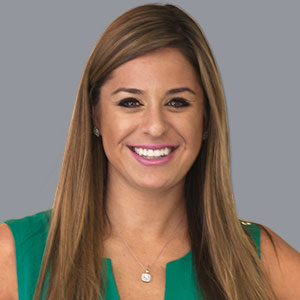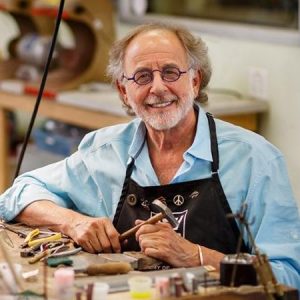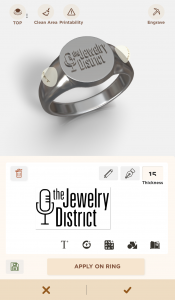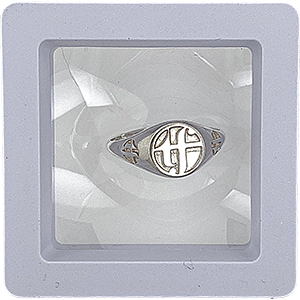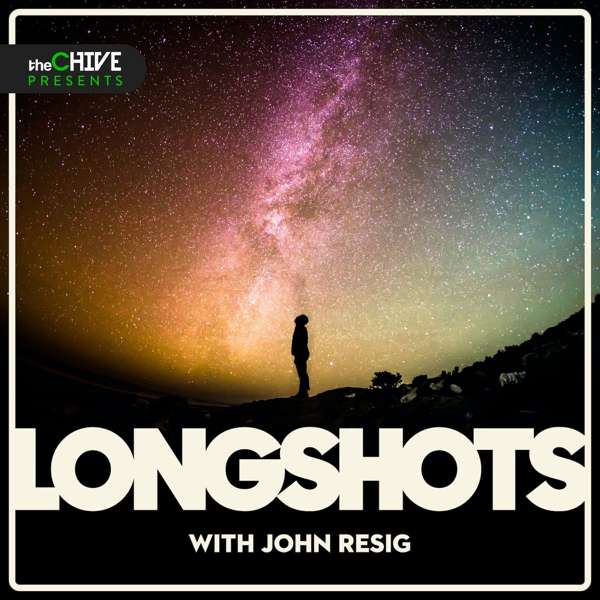JCK editor-in-chief Victoria Gomelsky and news director Rob Bates talk with Tom Nolan, CEO of Kendra Scott, a billion-dollar brand with a legendary origin story that started with a single mom selling her designs door to door. Tom recounts his own unlikely path to Kendra Scott and shares the inside scoop on the company’s formula for connecting with customers by creating emotional experiences. He offers a look at the 130-store chain’s successful growth strategy, its formula for weathering hard times, and a few clues about what’s ahead for the Texas-based powerhouse.
Sponsored by De Beers: diamondeducation.debeers.com
Show Notes
3:01 Tom Nolan’s journey to Kendra Scott
5:46 From door-to-door sales to jewelry powerhouse
10:39 Cultivating a customer-first culture
13:57 In the brand’s wheelhouse
16:01 The icon behind the name
18:15 Experiential retail specialists
24:26 What’s next for Kendra Scott?
Episode Credits
Hosts: Rob Bates and Victoria Gomelsky
Producer and engineer: Natalie Chomet
Plugs: jckonline.com; @jckmagazine; kendrascott.com; diamondeducation.debeers.com
Show Recap
From Baseball to Business
Victoria introduces Tom Nolan, CEO of Austin-based jewelry brand Kendra Scott. Founded in 2002, the company (named for its founder) has grown into a 130-store powerhouse valued at more than a billion dollars. Victoria invites her guest to share his background.
The son of working-class parents in New York City, Tom was the first in his family to finish high school. He earned a baseball scholarship and graduated from college in 1999, landing a job selling classified ads for magazines. This led to a stint as publisher of Conde Nast’s Golf World, then to Ralph Lauren, where he served as a senior vice president before leaving to start his own holding company. Prospect Brands, named for the street where he grew up, focused on reviving distressed assets, sometimes successfully and sometimes providing a great lesson in failure.
In 2014, Norwest Capital, Kendra Scott’s first institutional investor, invited Tom to join its board. He had no experience in jewelry and had never heard of the brand but flew to Austin to meet with Kendra and was impressed enough to accept the offer. He’s been with the company ever since.
An Upstart Becomes a Power Player
When Tom joined Kendra Scott, it was a $40 million dollar business with eight retail stores. Outside the Lone Star State, it was an unknown. But within three years, a transaction with another private equity firm catapulted the company’s value to over a billion dollars. Today, Kendra owns the majority of her namesake business, though strategic partners remain peripherally involved and have facilitated growth.
How did it all start? Flashback to 2002: Kendra Scott was a struggling single mom who had dropped out of college to help her stepfather cope with terminal brain cancer. Her interactions with chemotherapy patients inspired her to launch a hat business. Though well-intentioned, the business shuttered, leaving Kendra with $500 to her name. Undeterred, she turned her attention to the jewelry she’d initially crafted as an afterthought. She set up shop in a spare bedroom, finetuned her line—featuring affordable natural gemstones—then went door to door with her infant son in tow, selling her collection.
The early days were strictly wholesale. But when the 2008 recession hit, her customer base dried up, so Kendra boldly opened her own store. And something remarkable happened. She had always helped those in need, and the community showed its gratitude by patronizing her shop. It didn’t hurt that her designs were stylish and her prices were right.
Soon she had a thriving business with a unique vibe. While high-end retail often feels intimidating, Kendra Scott was the opposite. Products in the store were top of counter. Sales associates greeted customers with a glass of champagne and encouraged them to try on items. The store bustled with energy and frequently hosted events. “People were happy,” says Tom. “That was the catalyst for our success.”
Another strategy that grew out of necessity proved remarkably effective. “We would open retail stores in secondary and tertiary markets because we couldn’t afford to be in big markets,” Tom recalls. Plus, in smaller cities “we could control the experience and really become a part of the community.” The brand built its business from the middle of the country toward the coasts, inverting the traditional geographic strategy of retail chains.
A Customer-Centric Culture
Tom likens working at Kendra Scott to being part of a family. The company strives to make its 3,000 employees and its customers feel cared for, supporting them and their communities through philanthropy. Hands-on guidance from Kendra preserves the original vision of giving shoppers a thoughtful, positive experience while turning a profit.
This approach has served the brand well through challenges from social unrest to Covid and an impending recession. “It allows us to be really nimble, thoughtful, creative, compassionate, and sensitive to the customer,” Tom says.
The Best Sellers List
Though Kendra Scott stores now offer fine jewelry at $10,000+, fashion jewelry is still the beating heart of the brand. More than half of all sales fall into that category, with a price point under $100. Perpetual bestsellers include the Elisa pendant necklace and the Danielle earrings. Both have been in the line for 20 years and sell for $55–$60.
Regardless of the category, the company’s designs emphasize four core principles: shape, color, material, and value. “When I think about great brands, I think about things you can see across the room,” Tom says. He believes Kendra Scott has achieved this, as fans instantly recognize her vivacious, colorful natural gemstones in their iconic hexagonal shape.
The Face Behind the Brand
“[Kendra] is the great American success story—one of less than 20 females [to] have created and founded a business valued at north of a billion dollars, and she did it with nothing,” says Tom. Despite her success and frequent appearances on Shark Tank, she remains down to earth, just like her stores, he says. “She has a Midwestern sensibility that is approachable and kind and warm and aspirational at the same time. Those things generally don’t go together.”
Yet Kendra Scott is far from a household name. Just five percent of the country knows her name and her brand. Tom says this offers enormous potential for growth and winning new devotees not just with product but with Kendra’s inspirational story.
All About the Experience
Despite an uncertain economy, the chain had a banner 2022 with double-digit growth and is off to a good start in 2023. “We’ve been able to zig when other brands are zagging because we have the balance sheet to support making aggressive decisions like opening retail stores,” says Tom.
What’s more, the company is built to weather economic storms thanks to its focus on experiential rather than transactional business. “When you look at what’s winning now, it’s experiences. It’s restaurants and bars. People were so cooped up over Covid, they want to get out and live their lives. We’ve been able to stay ahead [by delivering] a great experience and a beautiful product at an affordable price.”
What does that famous in-store experience actually look like? Store managers are empowered to tailor offerings to local tastes, so it changes a bit from market to market. But “You can always expect somebody greeting you as soon as you walk in, offering you a glass of champagne, beer, water, or soda,” says Tom. They’ll also chat with you, asking questions in a friendly, non-pushy way, and encourage you to try on as many products as you’d like.
“When I’m in shopping centers, I always pay attention to what’s happening in other stores. By and large, they don’t look like happy places,” says Tom. “Our stores are fun. We have an amazing retail team filled with happy, excited people who are proud to work at our company. And we invite our customers to participate in the fun in that experience. That’s what retail is all about.”
The chain’s stores hosted 20,000 events last year—all tied to causes and organizations dedicated to improving lives. “Lots of companies make pretty things. We win because we create connections with our customers,” he says. “We win on philanthropy, storytelling, and aspiration.”
Trend Watch
Never willing to rest on its laurels, the brand has branched into several new areas recently. In 2022 Kendra Scott entered the engagement ring category, building on its strong wedding business. (The core of this is Color Bar, a go-to for wedding party jewelry such as matching earrings and bracelets for bridesmaids.) Offerings are predominantly lab-grown, partly because the price is palatable to the clientele, but also because lab-grown diamonds appeal to eco- and ethics-conscious Gen Z-ers and Millennials, notes Tom. Plans for the future involve making the ring-buying experience more immersive, perhaps with standalone Kendra Scott engagement/bridal stores.
Another new addition is the men’s line Scott Bros., named for Kendra’s sons. During the pandemic, Kendra found herself once again designing in her house, much as she had done in the company’s infancy. Her work piqued her sons’ interest, which gave rise to the new line and made the company a true family business. “It’s been really successful,” says Tom. He notes that 25% of the stores’ customers are men, many of whom come to buy gifts but are delighted to be able to pick out something for themselves, too.
In addition, Kendra Scott has launched watches and Yellow Rose, inspired by the Texas ranch lifestyle, Tom notes. “There are a lot of exciting things on the horizon for us in new categories that will allow us to broaden our reach and our product offerings beyond our core [jewelry] business.”

 Our TOPPODCAST Picks
Our TOPPODCAST Picks  Stay Connected
Stay Connected




